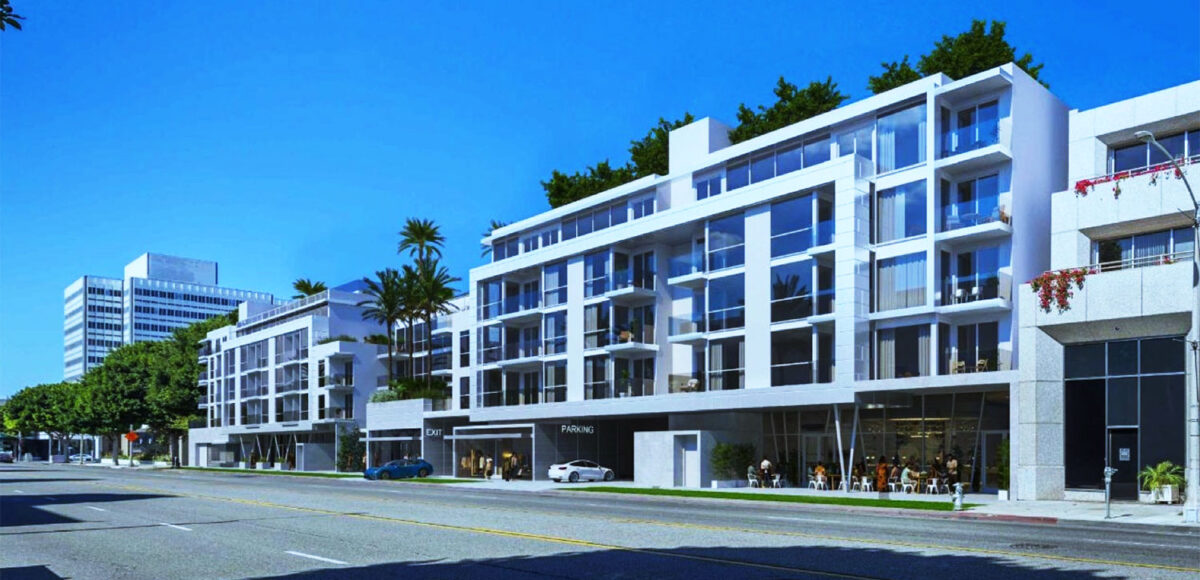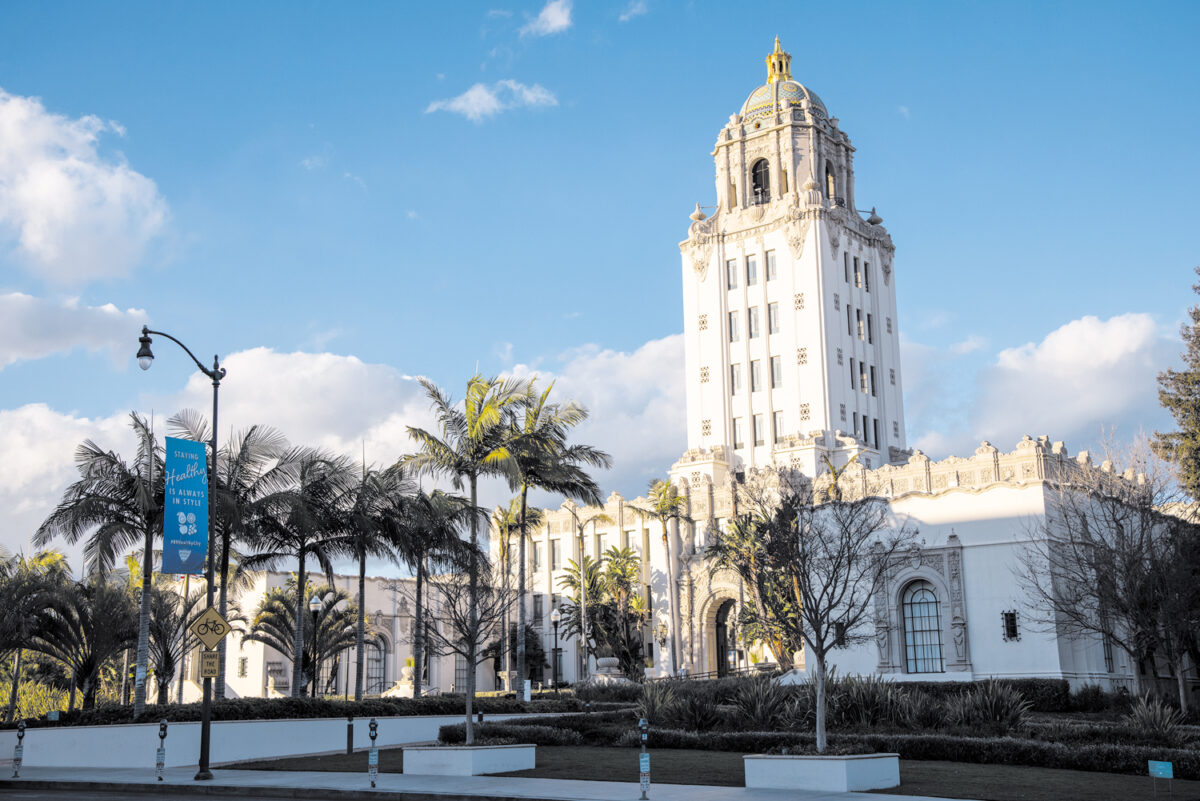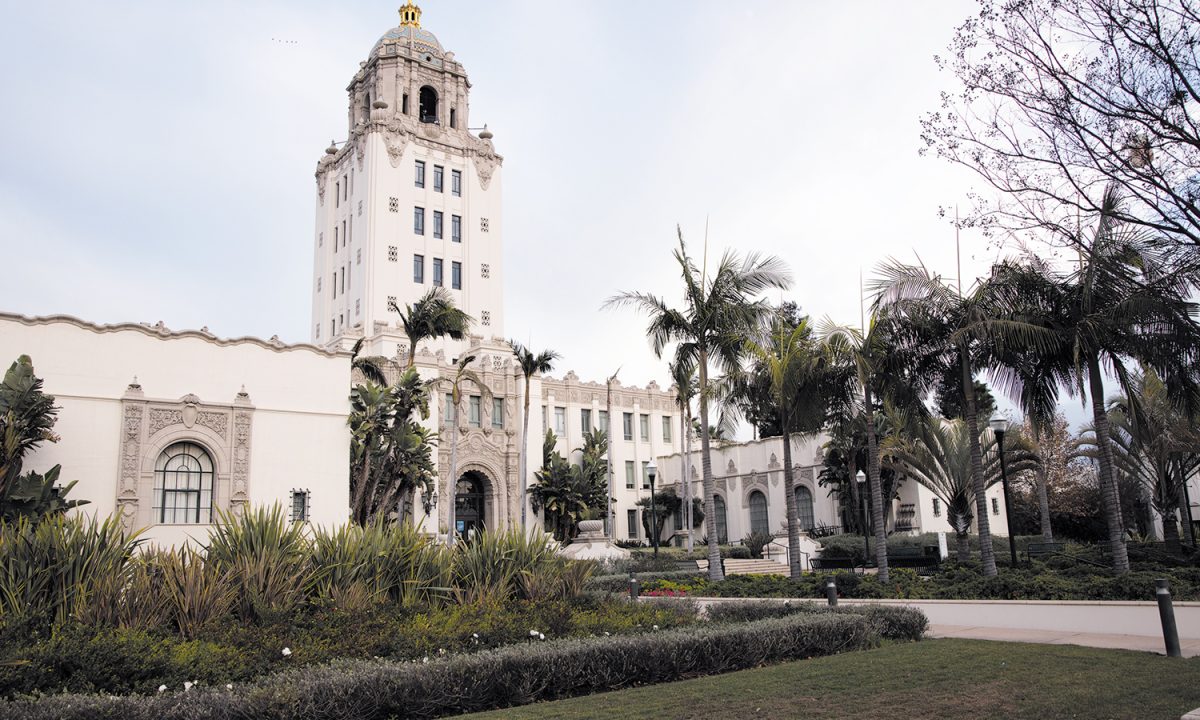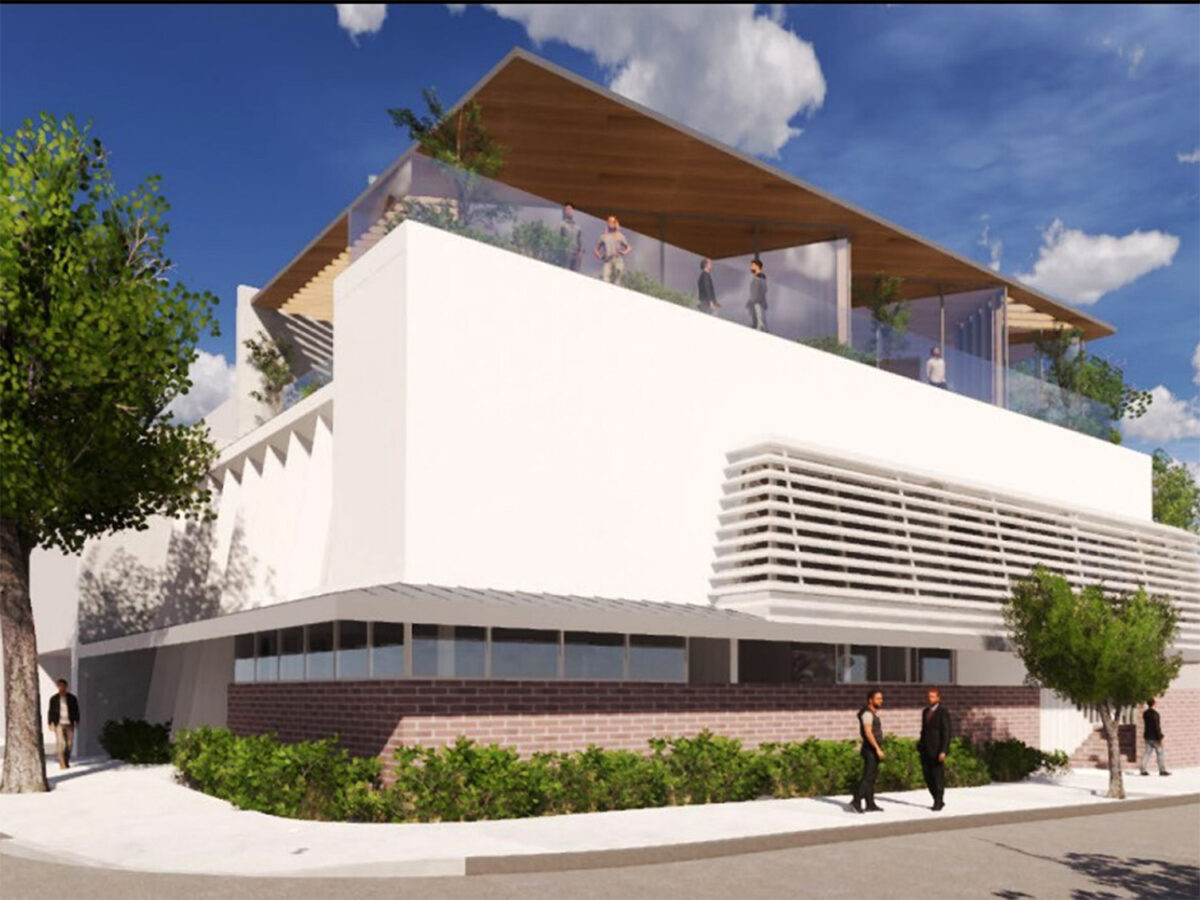The Beverly Hills Planning Commission has approved its first density bonus permit for a project in the city’s mixed-use zone, a precedent-setting move occurring nearly three years since the passage of an ordinance allowing for mixed-use development in the city.
On June 22, the commission considered a project at 55 N. La Cienega Boulevard. The location is the former site of the Stinking Rose restaurant, on La Cienega’s famed Restaurant Row, home to restaurants including Lawry’s The Prime Rib and Matsuhisa.
The proposed project includes ground floor commercial uses; 105 residential dwelling units for rental above the ground floor; rooftop restrooms; and subterranean parking. Additionally, 11 units in the development would be reserved for “very low-income households.”
“The project seeks to redevelop an existing underutilized commercial property by providing for the replacement of existing restaurant uses and new retail uses while providing new housing opportunities that would be available to a mix of income types,” the staff report says.
Currently, the 38,500-square-foot property houses a one-story, 13,500-square-foot vacant commercial building and surface parking lot. The development would replace the existing vacant building with an 18,986 square-foot new commercial floor area.
Abraham Assil, the applicant for the project, has attempted to develop the property multiple times. His previous proposal for the site—a hotel—was rejected by the commission. On June 22, appearing before the five-member commission, Assil said the development’s integration of apartments with commercial offerings had incorporated community input.
He said he envisioned an Eataly-style establishment for the property’s ground-floor commercial use. Attempting to reassure the commission it would not be a large supermarket operating on the ground floor, it would be something “very high-level, European, stylish,” he said. “It would be a very high-end environment.”
Commissioner Peter Ostroff, however, said there needed to be a way to maintain control over what type of commercial tenant would assume the ground level.
“One man’s supermarket is another man’s convenience store,” Ostroff said. “That’s not something we can enforce and that’s what’s important for these purposes.”
It was not the only point of contestation during the meeting. Ostroff expressed concern about balconies proposed for the project’s residential units throughout the west-facing upper levels.
“The balconies are a very close call for me, but I’m not going to micromanage the building,” the commissioner said.
Despite Ostroff’s reservations, the five-member commission ultimately voted unanimously to adopt the resolution conditionally approving a development review and density bonus permit for the proposed—and milestone—mixed-use project.
Before weighing the proposal of 55 N. La Cienega, the commission revisited the ongoing controversy surrounding Spring Place, a co-working space and private membership club located at 121 Spalding Drive and 9800 Wilshire Boulevard.
Spring Place’s representatives sought approval from the Planning Commission on a new set of more flexible conditions for the rooftop usage at its facility.
Since the outbreak of the COVID-19 pandemic, there has been controversy over Spring Place, which operates in the Gores Group building. Issues have arisen primarily in connection with the facility’s 7,000-square-foot rooftop space. Its usage for parties and other noisy events has prompted complaints from the property’s neighbors.
In response to complaints, the commission has previously attempted to regulate activity there by limiting crowd sizes permitted on the Spring Place roof.
Those at the meeting included Spring Place attorney Mark Egerman. Appearing before the five-member commission, he argued a limitation of 30 individuals was too small and unnecessary. He also said Spring Place would like to operate the northern roof space until 10 p.m.
“We have hit the summer months, we live in a fabulous climate community, it is light until after 8 p.m., and we feel the additional time is reasonable,” Egerman said.
Acknowledging the difficulties that have arisen in the past, Egerman said Spring Place was committed to winning back the credibility with the commission and the city.
Commission Chair Myra Demeter, however, pushed back. She said Spring Place has not followed, among other things, a requirement to offer free valet parking.
“I do not feel you have been in compliance since 2020,” Demeter said.
Ostroff was particularly blunt in his assessment of Spring Place’s past behavior.
“The reason we’ve had to spend so much time on this is that Spring Place has just been a bad actor from the outset. And it doesn’t really appear to have changed, and I think the things Spring Place are asking for demonstrate they haven’t changed at all,” Ostroff said. “Spring Place wants to operate this as an events space, as a party place, rather than the office facility that was represented when we first looked at this. Whenever things aren’t exactly the way they want, they just take matters into their own hands.”
Commissioner Teri Kaplan said challenges facing Spring Place date back to the pandemic.
“I think where this all went very seriously wrong is COVID,” she said.
The body unanimously passed a motion for the conditional approval of a development plan review that would regulate the rooftop use for Spring Place.
“I’m a believer in third and fourth chances,” Commission Vice Chair Gary Ross said before the vote.
The June 22 meeting was Demeter’s last as commission chair, though she will continue to serve on the commission with Vice Chair Ross assuming the role as chair. At the conclusion of the meeting, addressing her fellow commissioners, she said, “I know we don’t all agree, but we respect one another. Thank you for giving me the opportunity to work with you.”
The commission’s next meeting is scheduled for July 13.







